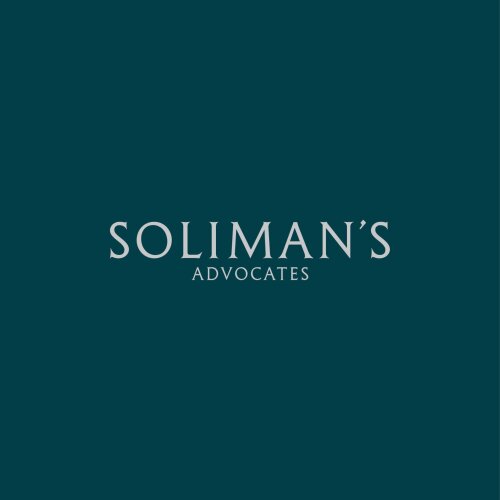Best Information Technology Lawyers in London
Share your needs with us, get contacted by law firms.
Free. Takes 2 min.
List of the best lawyers in London, United Kingdom
About Information Technology Law in London, United Kingdom
Information Technology Law, often referred to as cyber law, in London, United Kingdom is a complex field that encompasses all legal issues related to the use of information technology - ranging from data protection, intellectual property rights, e-commerce to cyber crimes. Given the expansive nature of this field, IT law is governed by multiple pieces of legislation, primarily the Data Protection Act 2018, The Computer Misuse Act 1990, The Copyright, Designs and Patents Act 1988, The Regulation of Investigatory Powers Act 2000, among others.
Why You May Need a Lawyer
Common situations where individuals and businesses may require legal help in Information Technology include data breaches, copyright infringement concerns, drafting and reviewing IT contracts and licenses, issues relating to e-commerce transactions, compliance with data protection regulations, and instances of cyber crime. In these situations, having a lawyer experienced in IT law can help mitigate legal risks, ensure regulatory compliance, protect intellectual property, and resolve legal disputes efficiently.
Local Laws Overview
The key aspects of local laws particularly relevant to Information Technology in London include data protection under the Data Protection Act 2018 which stipulates the rules of handling personal data, intellectual property protection under The Copyright, Designs and Patents Act 1988, regulation of e-commerce transactions, and legal issues around cyber security under The Computer Misuse Act 1990 which penalizes unauthorized access to computer material. Specific provisions also exist for digital marketing, online privacy and electronic communications under the Privacy and Electronic Communications Regulations.
Frequently Asked Questions
What is the Data Protection Act and how does it affect me?
The Data Protection Act 2018 is a comprehensive legislation that regulates how personal information can be used by organizations, businesses or the government. It grants individuals rights over their data, such as the right to access their data, the right to ask for incorrect information to be corrected, and the right to object to how their data is processed in certain circumstances.
How does Copyright Law protect my software?
The Copyright, Designs and Patents Act 1988 provides protections for software as literary works. This means that copyrighted software cannot be copied, sold or rented without the permission of the copyright owner, which is typically the creator or their employer.
What can I do if I've been a victim of a data breach?
If you've been a victim of a data breach, you should first contact the organization responsible and ask them to fix the issue. If they fail to address it, you can report the breach to the Information Commissioner's Office, the UK's independent authority set up to uphold information rights. You may also need legal advice to assess potential claims for compensation.
What is e-commerce law and why is it important?
E-commerce law covers all legal issues related to buying and selling goods and services over the internet. It's important for protection of consumer rights, enforcement of contractual rights and obligations, prevention of fraudulent transactions, privacy protection, and compliance with tax and regulatory norms.
How can I protect myself against cyber crime?
Besides taking adequate technical safeguards like using strong, unique passwords and securing your networks, it’s equally important to be aware of the legal options. If you suspect a cyber crime, such as phishing or internet fraud, report it to your local law enforcement or to Action Fraud, the UK's national reporting centre for fraud and cyber crime.
Additional Resources
The Information Commissioner's Office (ICO) is a crucial resource for understanding data protection rights and obligations. TechUK, a network of tech companies in the UK, can offer guidance on industry best practices. The National Cyber Security Centre provides advice on protecting your information systems, while the Intellectual Property Office can assist with patent requests and copyright issues.
Next Steps
If you need legal assistance in Information Technology, the first step is to determine the nature of your concern. Then, consult with an IT lawyer or law firm specializing in IT law. Consider gathering all necessary documents and evidence pertaining to your case prior to the consultation. Always remember: proper legal advice can help prevent future issues, protect your rights, and potentially save you time and money in the long run.
Lawzana helps you find the best lawyers and law firms in London through a curated and pre-screened list of qualified legal professionals. Our platform offers rankings and detailed profiles of attorneys and law firms, allowing you to compare based on practice areas, including Information Technology, experience, and client feedback.
Each profile includes a description of the firm's areas of practice, client reviews, team members and partners, year of establishment, spoken languages, office locations, contact information, social media presence, and any published articles or resources. Most firms on our platform speak English and are experienced in both local and international legal matters.
Get a quote from top-rated law firms in London, United Kingdom — quickly, securely, and without unnecessary hassle.
Disclaimer:
The information provided on this page is for general informational purposes only and does not constitute legal advice. While we strive to ensure the accuracy and relevance of the content, legal information may change over time, and interpretations of the law can vary. You should always consult with a qualified legal professional for advice specific to your situation.
We disclaim all liability for actions taken or not taken based on the content of this page. If you believe any information is incorrect or outdated, please contact us, and we will review and update it where appropriate.









